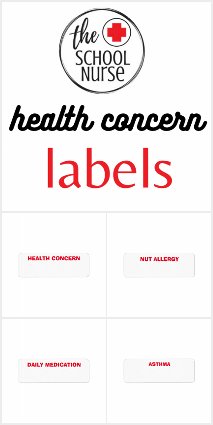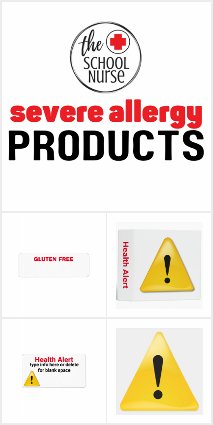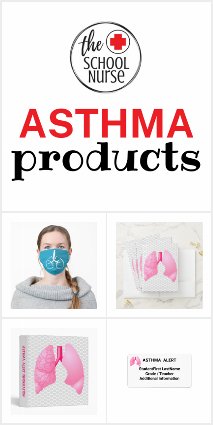Allergy Emergencies: Are You Prepared?
Essential Allergy Preparedness for School Nurses
How Should a School Nurse Respond to a Life-Threatening Allergy?
Allergy emergencies can occur suddenly and without warning, making it crucial to have a well-structured response plan in place. A proactive approach ensures that students with severe allergies receive the care they need quickly and effectively. Here are key factors to consider when preparing for potential allergic reactions in the school setting:
- Does your district require an allergy action plan? Verify if your school requires a formal allergy action plan or medication authorization for students with severe allergies.
- How are students with severe allergies identified? Develop a system for safely identifying students at risk, ensuring privacy while keeping key personnel informed.
- How will you gather additional health information? Consider using a standardized health history form to collect essential details from parents and update records as needed.
- Are students allowed to carry their own emergency medications? Check district policies regarding self-carry and self-administration of epinephrine, and educate students on their responsibilities.
- Who needs to be trained? Identify staff members who should be trained to recognize allergic reactions and administer epinephrine, including teachers, coaches, and cafeteria staff.
- How will staff receive training? Determine the best method for educating staff on allergy signs, symptoms, and emergency medication use. Hands-on demonstrations and annual refresher sessions can be valuable.
Having a well-defined allergy response plan not only helps ensure a coordinated approach in an emergency but also fosters a safer school environment.
Notifying School Staff About Student Health Concerns
Effective communication with teachers and staff is essential to ensuring that students with life-threatening allergies receive the support and care they need. Clear, consistent messaging helps staff recognize allergic reactions, understand emergency protocols, and respond appropriately when seconds matter.
Utilizing email and student management systems like Skyward can streamline the process of sharing critical health information. Consider these best practices:
- Email Notifications: Send targeted emails to teachers and key staff outlining students’ allergy action plans, emergency protocols, and any necessary accommodations.
- Digital Health Records: Upload allergy action plans, medication authorizations, and emergency procedures into Skyward or your school's health management system to ensure easy access for authorized personnel.
- Teacher Tips: Provide staff with quick-reference guides that summarize key allergy information and response steps, helping them feel more prepared in an emergency.
- In-Person Follow-Ups: Encourage teachers to reach out with questions or concerns and offer brief, in-person training when necessary.
By integrating digital tools and direct communication, school nurses can ensure that all staff members are informed, confident, and ready to act if an allergy emergency arises.
Why Notify School Staff?
Teacher Tips health cards offer a simple yet effective way to share broad information about medical conditions, including severe allergies. These quick-reference cards give staff an overview of allergy symptoms, emergency response steps, and key precautions. They also serve as an open invitation for teachers to ask questions and seek more detailed guidance as needed.
By proactively educating school staff, we can help create a safer environment where everyone is equipped to respond confidently in an allergy emergency.
Using Skyward for Health Notifications
If your school uses Skyward, take advantage of the Health module by attaching digital Teacher Tips cards under a student’s health records. Follow these steps:
- Open the student’s profile in the Health tab.
- Select "IHP" (Individualized Healthcare Plan).
- Click "Add File" and upload the Teacher Tips document as a PDF.
- Use the comment box to include student-specific notes or important details for staff.
Using Skyward to document student health conditions is a valuable tool for ensuring that essential medical information is accessible to those who need it. Be sure to add an indicator so teachers are prompted to review any health concerns that may impact their students.
If you're using an older version of Skyward and need guidance, I have a step-by-step how-to guide available HERE to help you navigate the system efficiently. Keeping health records up to date and easily accessible helps ensure a swift and informed response in case of a medical emergency.
This system is particularly helpful for middle and high school students who have multiple teachers throughout the day. Additionally, the Health Condition tab in Skyward can be a useful tool for tracking medical concerns and running reports throughout a school year.
Apply for Free EpiPens
Does your school have undesignated epinephrine available for emergency allergy situations? If you’ve been following this blog, you know that Mylan Pharmaceuticals & BioRidge Pharma offer schools two free two-packs of epinephrine auto-injectors, along with replenishment doses and training devices, each calendar year. This program has saved schools significant amounts of money while also ensuring life-saving medication is readily available.
While there is required paperwork to complete, it is straightforward. Schools must have a district physician or a local doctor willing to sign an order or provide a standing prescription.
Having emergency epinephrine in every school building can be the difference between life and death for a student, staff member, or visitor. You can find more details and apply for the program HERE.
Final Thoughts
If you have experience using undesignated epinephrine in a school setting or if your state provides standing orders for emergency medications, I’d love to hear from you! Share your insights in the comments—your experiences can help other school nurses strengthen their own preparedness efforts.
SCHOOL NURSE RESOURCES



.png)




%20(1).png)

.png)
No comments:
Post a Comment